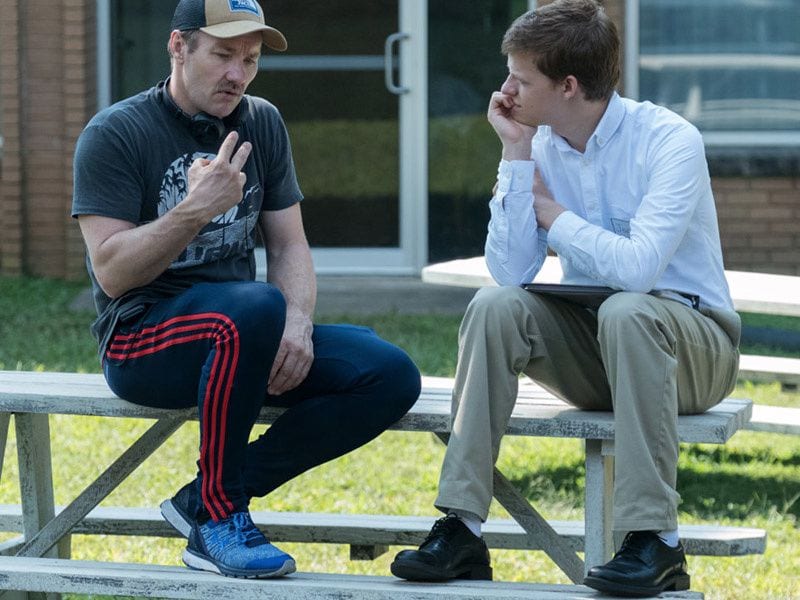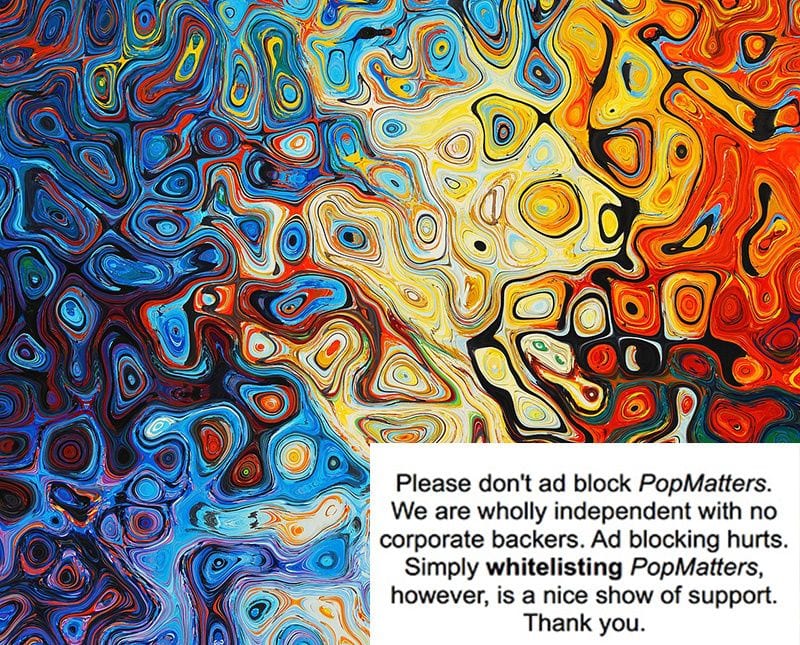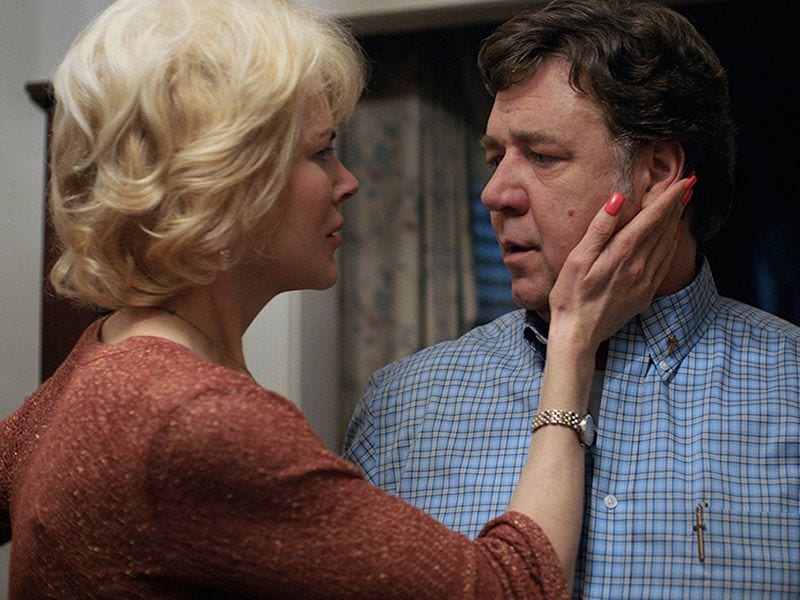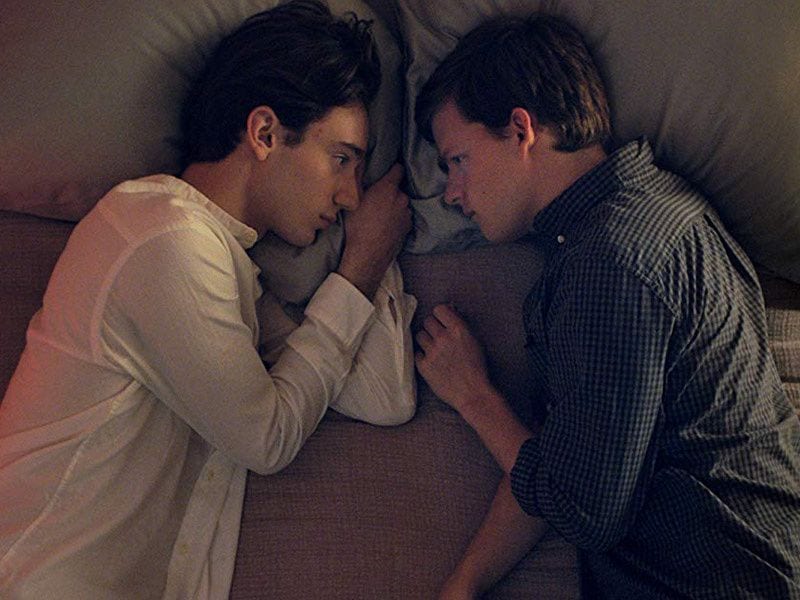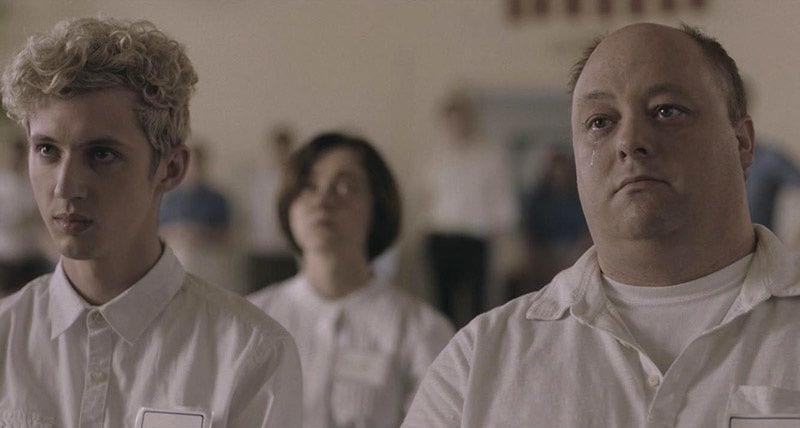
Joel Edgerton’s second directorial offering, Boy Erased, is based on Garrard Conley‘s harrowing memoir of the same name, which recounts his experience being sent to a gay conversion therapy program by his parents when he’s outed as a teenager. Led by Lucas Hedges (Manchester By the Sea, Lady Bird) in the main role of Jared Eames, the film also stars Russell Crowe and Nicole Kidman as his parents and Edgerton as his gay conversion counselor.
Edgerton joins PopMatters in conversation about the nuances of conveying Conley’s story onscreen, avoiding overdramatizing the material, working with fellow Aussies Crowe and Kidman for the first time, how the film might help families that have gone through similar experiences, and more.
Given the gravity of the true story, this is an incredibly deep, complex role for any actor to take on, let alone a newcomer like Lucas. But he meets the challenge. You worked with his dad, Peter, years ago on The Odd Life of Timothy Green — did you meet Lucas back then?
Yeah. He and I met playing basketball during The Odd Life of Timothy Green because he was visiting his dad. There’s kind of a cute story behind that. At the end of the shoot, he got his first acting job. Pete said he’d just gotten a job with Wes Anderson in Moonrise Kingdom with Ed Norton, which was really cool. I wrote him a note congratulating him, which he [reminded me of] a couple of months ago. He read me the message I gave him, and I’d said at the end, “p.s. Don’t you dare grow up and start stealing my acting jobs.” So it was weird coming to work with him all those years later.
[When we shot Boy Erased,] Lucas was in that perfect pocket of being a boy and a man at the same time. He was no longer a boy, not quite a man. He’s a sensitive actor who can hold the screen in stillness and express himself through listening. And he’s also got an everyman quality to him.
Garrard, as a person, he didn’t get outed until he was in college. Whether people thought anything different about his sexuality or not is one thing, but he was no jock, nor was he an obvious, super effeminate person. He didn’t carry himself in a way that was effeminate. He was somewhere in the middle, just a kid in high school. Lucas really summed that up for me as well.
I actually knew [Lucas] better than I knew Russell and Nicole. I had met them before, but it wasn’t like I was casting my mates. I cast them because they looked like real people. I think people think I was down in Australia and I was feeling lazy when casting the movie or something.
In these kinds of films — deeply personal and also political — there are many opportunities for you to be excessively manipulative with your audience considering the sensitive nature of the material, but you don’t seem to be going for that.
No. That’s me taking the lead from Garrard’s book. It never felt to me like the character that I play was casting a long, sinister shadow everywhere he went. There’s such strength and subtlety that exists between the margins of the simple act of telling [a teenager] that his college degree he hopes to get back to is maybe not such a good idea for him, and that maybe it’s better that he spend an entire year at a conversion therapy [institution]. It’s a devastating blow, having the two most identifiable heroes in your life, your mom and your dad, tell you that you can’t live with them if you aren’t willing to change. Those things, to me, are big. They’re dramatic enough without us having to create more of a villainous filter over any [of the characters].
Garrard’s dad is in so much pain around the situation. I met him and had dinner with him, and he broke into tears, talking to me. You don’t feel those kinds of emotions if you’re not in a lot of pain. And one of the biggest ingredients in that pain is love.
I didn’t want a father who beat his child or is just willing to turn off the valve of love. [His son coming out] almost made him turn up the valve of love because he thought he could help bring him back to the “right side.”
The real dilemma of this movie is that nobody was really trying to hurt anybody. That, to me, is kind of terrifying, to walk into a very corporate looking place and have people going, “Hey, man. Buck up, this is going to be a rough ride, but gee, we’re going to lick this thing.” It’s like, there’s no licking it. There’s no changing things. To have somebody so convinced that they’re going to help you… I think is just madness.
As you mentioned before, Lucas is an actor who can tell a story just by sitting still. I’d say Russell and Nicole have that capability as well. What was it like directing them?
It’s kind of a privilege to direct good actors and watch them play. That’s what made me want to make a movie like this, a drama. Watching Jason [Bateman] and Rebecca [Hall] in The Gift and just feeling so satisfied after a day’s work I thought, what would it be like if every scene in the movie was like this, actors really tearing things apart, breaking things open? Just good performances.
You don’t need to teach [Lucas, Russell, and Nicole] anything. But you’re steering them gently around the story. And just being able to get a front row seat to watch Nicole and Russell and Lucas do these incredible performances was such a joy.
There are a lot of moments with Russell Crowe’s Marshall Eamons when he’s not saying a word, but you can tell he’s being eaten up inside.
There’s a moment when Jared tells him that he thinks about men, his version of coming out. And Marshall [Russell] is just sitting there absorbing the news. I told Russell, “When you actually catch the impact of that blow, the truth that your son is gay, let’s get some physical shift out of you.” It was just an editorial thing for me, to be able to see some sense of movement, whatever it is. He said, “Alright… but it is there. Everything you just said… it’s there. I just did it.” I was thinking, I don’t think so. But he said he’d give it to me, and he did it.
But I went back and watched the first take and realized, because I was watching it on such a small monitor, he’d done this thing when he absorbs the news — one of his eyes flicked. He was right, you know? Who am I to tell Russell he needs to do something more? [laughs]
Boy Erased is quite different from The Gift. In what ways have you grown as a filmmaker?
I don’t know. I’m sort of interested in doing something different again. I do feel like, in many ways, this film is an evolution in its own way. It’s a bigger scale with more characters, more sets and more environments. But it was also sort of straying from a safer place.
I very much understood The Gift‘s genre aspects and the rules of genre. In drama, there are less rules. There are no specific tropes you’re holding onto. I felt like I was treading into new water and working a little more from instinct. I’d like to think that I’ve learned new things. I’d like to perhaps relax a little more on my next outing, even. Take the camera off the tripod, maybe.
What I would love to do next time [I make a movie] is make sure I’m not working on such a tight schedule and have a rehearsal period where I’d like to take that idea of how much I love actors and not just have faith that it’s all going to work out on the day [of shooting]. We had a little bit of rehearsal [on Boy Erased] but I want to really let the film be about the actors and less about the mechanics and the infrastructure around it. Rather than go bigger and use more extreme equipment and bigger personalities, I want to look at [the next movie] as an exercise in production, of really working together with a cast, and then bringing the equipment in.
I spoke to Alfonso Cuarón about Roma, and he said that he was the only one with a script [on set]. None of the actors had a full script. He would just tell people what their dialogue was and he would talk about the scenario. And he shot [the movie] chronologically. There are scenes you watch in that movie and you think, oh my god, that person had no idea what was going to happen, and yet, that’s the scene. It’s incredible.
I’d like to break form a little bit. I think that’d be interesting. Get back to the bare bones of performance.
Boy Erased is the kind of movie that could mean absolutely everything to someone who has gone through gay conversion therapy. I imagine the story will resonate with their family members just as much.
I had a guy come up to me at the airport, and he had seen Warrior. It was years after we’d made the movie. He said, “Oh my god, I want to say to you I love Warrior, and after my brother and I saw that film, we immediately had a conversation and ended up calling our dad who we hadn’t spoken to in over five years.”
[Boy Erased], to me, is an even more obvious film with the potential to help people in certain ways, to help parents understand their choices by watching one family’s example of it in the film. It may help young people who are going through certain things to identify with someone else’s story and realize that they’re not alone. They’re not the only one. Parents and kids can share it together, and people can pass it along to people they know who might stand to gain something from it.
One good example that really resonated with me and was really emotional was this young volunteer at Telluride. He came up to me and said, “I just want to thank you so much for making this movie. I just wish that this movie existed for me when I was fifteen.” In that one sentence, it made me imagine a world where you’re trapped somewhere, or you’re lost. Stifled by all sorts of opinions and things that swivel around the subject matter but not having a lifeline of any kind.
This film, I think, has an opportunity to be a lifeline for people and a conversation starter that leads to some kind of change in a positive direction. Even if that’s for one family or one person, it’s all worth it. I hope that, in a year or two’s time, Boy Erased is actually redundant. You’ll be watching it like, once upon a time, this happened in America, rather than it being the current state of the world.


